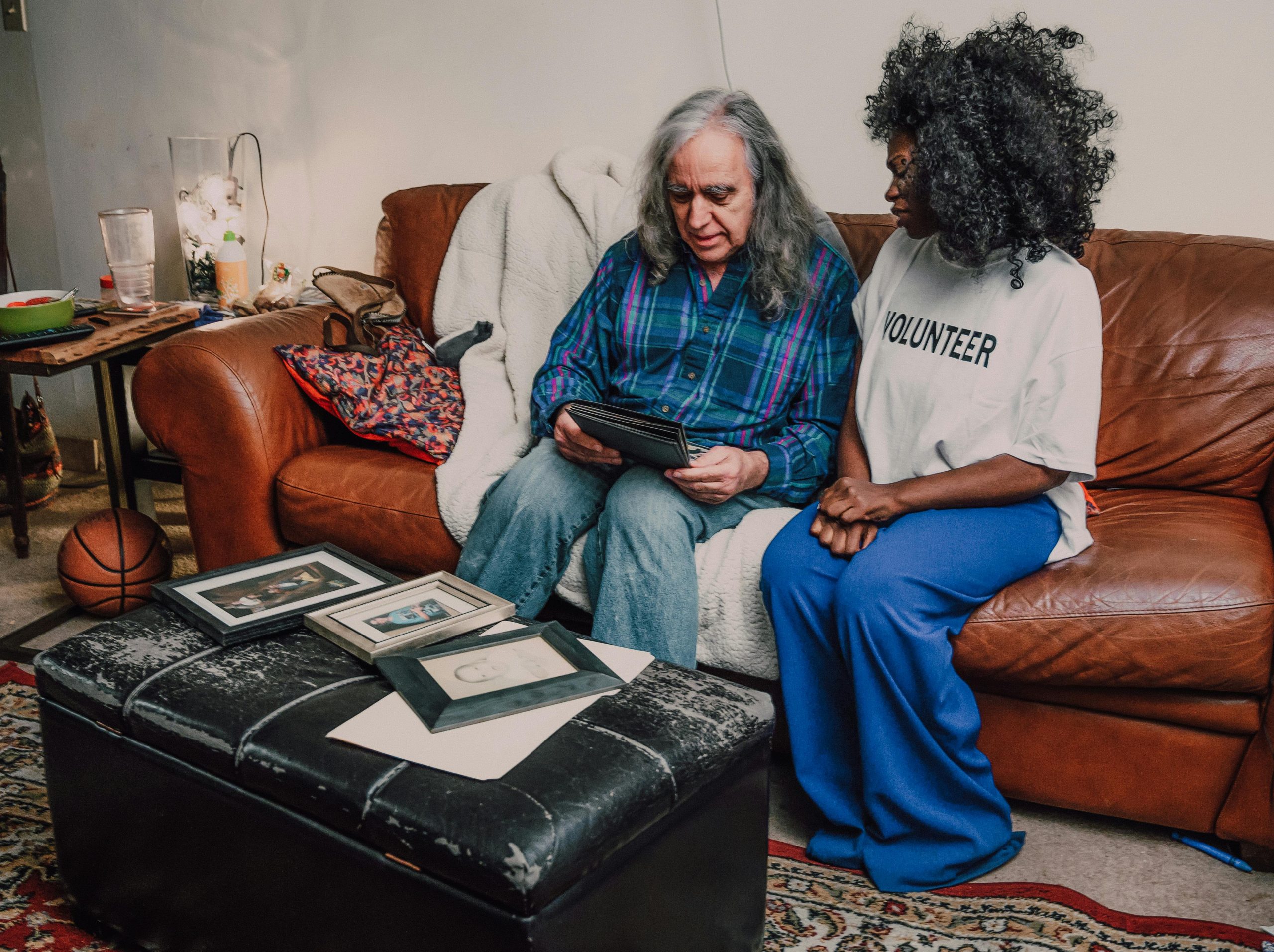Everything feels like a dream at first—constant texts, sweet messages, and big promises that make you feel special. But when someone showers you with too much attention too fast, it can cross the line from romance into control. That’s called love bombing, and it can leave you feeling confused or even trapped before you realize what’s happening.
Catching these warning signs right away can protect your peace of mind. In this guide, you’ll find 10 clear red flags that signal love bombing early. If anything starts to feel off, trust your gut. The sooner you spot manipulation, the safer you’ll be.
What is Love Bombing?

Photo by cottonbro studio
Love bombing looks like a fairytale at first. Someone new showers you with affection, endless attention, and over-the-top flattery. You might feel like the center of their world right away. All those good morning texts, surprise gifts, and fast declarations of love can make you believe you’ve found something rare.
But this kind of whirlwind romance often hides strings. Instead of steady, mutual growth, everything gets intense fast. Underneath the charm is a power play meant to keep you hooked.
Why Love Bombing Feels So Good at First
When you get hit with a flood of love and attention, it’s easy to feel flattered. You might think you’ve finally met someone who “gets” you. That early stage can make your heart race in a good way. The constant praise and eager plans for the future push your buttons and boost your confidence.
People who use love bombing know how to make you feel special. They pick up on your interests and say all the right things. The attention can be overwhelming but exciting.
What’s Really Happening Beneath the Surface
Love bombing isn’t about genuine love or respect. It’s a way for someone to win trust and slip past healthy boundaries. The real motive is often control, not connection. The giver of affection isn’t being open or honest—they’re laying a trap so you become attached fast.
After getting you hooked, their true colors show. The intense kindness may switch to blame, guilt, or pressure. What started as romance can quickly turn into a cycle of confusion.
Why Do People Use Love Bombing?
People use love bombing to get what they want without giving real effort. Here are a few common reasons why they do it:
- Fast Attachment: They want you to depend on them emotionally before you’ve built real trust.
- Control: Once you’re attached, it’s easier for them to steer the relationship or twist situations.
- Avoiding Genuine Effort: Instead of slow, honest connection, they take a shortcut by flooding you with “love.”
- Testing Boundaries: They push to see just how much you’ll accept.
Love bombing isn’t about healthy love—it’s about covering up insecurity, gaining influence, or keeping you close for their own benefit.
Spotting these early signs means you can step back and protect yourself before things get toxic.
10 Red Flags That Signal Love Bombing Early
When love bombing starts, it’s rarely obvious at first. The signs often show up as grand romantic gestures or intense affection that feels flattering in the moment. Yet, these early actions can be the first hints of emotional manipulation. If these behaviors start stacking up, it’s time to pay attention.
They Move Lightning Fast
Don’t ignore a relationship that speeds ahead as if it’s in a race. Someone pushing for instant intimacy or talking about your future together right away can be a big warning. You might hear things like, “I’ve never felt like this before,” or, “We should move in together.”
If you’re talking about forever and it’s only been a few days or weeks, that pace isn’t healthy. Real connection needs time to grow—it can’t be forced overnight.
Grand Gestures Right Away
Real love means thoughtful actions, not just dramatic ones. But with love bombing, the show starts early and never lets up. You may receive:
- Expensive gifts after just a few dates
- Flowers delivered daily
- Handwritten love notes left on your car
- A parade of romantic texts every hour

Photo by Tim Gouw
These gestures look sweet but often serve to flood your attention and push the relationship forward before you feel ready.
Over-the-Top Flattery
It’s normal to get compliments, but love bombers take it to another level. They might compare you to every great love in history or claim you’re the most perfect person they’ve ever met.
If you’re told no one else has ever made them feel this way, or you’re the “best partner anyone could have,” it’s a signal to pause. Real praise feels genuine and specific, not exaggerated or rehearsed.
They Want All Your Time
If it feels like your life is suddenly booked solid, that’s cause for concern. Love bombers crave constant attention and may make you feel guilty when you try to spend time apart. Signs include:
- Hundreds of texts and calls a day
- Insistence on seeing you every day
- Upset reactions if you make plans with friends or family
Your time is yours. Anyone trying to take it all for themselves is overstepping.
Jealousy Over Small Things
A partner who flips out over a text from a coworker or comments on an old friend’s photo may seem invested, but it’s really a red flag. Jealousy over innocent things is all about control.
They might question who liked your social media post or express discomfort if you chat with someone at work. This behavior limits your independence and grows over time.
You’re Put On a Pedestal
Being treated like the center of someone’s world might feel great at first, but it’s not grounded in reality. Love bombers lift you way up only to later control or criticize you when you “fall short.”
The higher the pedestal, the harder the fall when things shift. No one can live up to being perfect, and real relationships don’t require it.
Guilt Trips When You Want Space
Want a night to yourself? A love bomber acts wounded or starts hinting that you don’t care. Their responses might include:
- “I guess you don’t love me as much as I love you.”
- “I just feel so alone when you’re not around.”
Suddenly, a simple request for space turns into an emotional minefield.
Push for Commitment Too Soon
Getting engaged or moving in together within weeks (or even days) skips important steps. Love bombers race toward “official” status before true trust is built.
If someone is pressing for exclusivity or making big future plans before you’re both ready, slow things down. Healthy relationships don’t need pressure.
Inconsistent Behavior
The mood swings are real. One day, your partner is the perfect sweetheart, the next they’re cold or resentful. This keeps you guessing and off balance, always wondering what’s coming next.
Unpredictable actions are designed to keep you chasing their approval. Notice if you feel anxious about their reactions or have started walking on eggshells.
They Downplay Your Concerns
Bringing up something that’s bothering you? Love bombers twist the narrative—maybe you’re “overreacting,” “just insecure,” or “crazy to question their motives.”
When your gut says something’s off but they insist everything’s fine, trust yourself. Dismissing your feelings is a big red flag for emotional manipulation.
Why Love Bombing Hurts: The Emotional Fallout
Love bombing starts like a fairy tale, but the crash landing hurts in ways that can stick with you long after the relationship ends. The magic shifts to confusion and pain as the person who once gave you everything slowly pulls it all away. It’s like being swept up in a tornado and dropped in a place that feels foreign and lonely.
The emotional fallout can be intense and difficult to explain, especially if you thought you’d finally found something good. Understanding common effects helps you put a name to what you’re feeling—and reminds you that you’re not alone.

Photo by Amirr Zolfaghari
Confusion and Whiplash
Sudden swings from deep affection to cold indifference can mess with your head. You replay past conversations, searching for clues about what changed. It’s as if the rules keep shifting, and you never quite know where you stand.
For many, this rollercoaster breeds anxiety and leaves you second-guessing yourself at every turn.
Example:
Imagine someone going from texting you good morning every day to ignoring you for hours, or even days, without explanation. The silence feels sharp, making you wonder what you did wrong—even if you did nothing at all.
Loss of Trust
The special bond you thought you had gets shattered when the affection disappears. You may start to doubt your sense of what’s real, especially if you trusted them with your secrets or dreams.
Love bombing can trick your mind into believing in someone who wasn’t ever being honest. This makes it tough to trust new people, and even yourself, later on.
- Broken trust can show up as paranoia in future relationships.
- Many feel wary, waiting for the next “too good to be true” moment.
Isolation from Others
A love bomber often tries to become your whole world, nudging you away from friends and family. When things sour, you might look up and realize you’re more alone than before.
You may not reach out to others for help because you feel embarrassed, or because the love bomber made you believe no one else cares as much as they do.
Example:
You skip family dinners or ignore calls from friends because you’re wrapped up with your new partner, only to regret it once you notice you’ve drifted from your support system.
Growing Self-Doubt
One of the toughest parts about surviving love bombing is the way it can chip away at self-esteem. When you’re blamed for asking for space, or made to feel guilty for taking care of yourself, it plants seeds of doubt.
You might think:
- “Maybe I am too needy.”
- “Did I expect too much?”
- “Was it all my fault?”
These thoughts linger, shaping the way you view yourself. You may become extra cautious or worried you’re being unreasonable—even when you’re not.
Emotional Exhaustion
Trying to keep up with the constant shift between affection and withdrawal wears you down. The stress can drain your energy, making it hard to focus on work, school, or even daily life.
You might notice changes in sleep, appetite, or just feel on edge for no clear reason. The fallout from love bombing isn’t just emotional—it can show up in your body too.
The side effects of love bombing run deep, but recognizing them is the first step back to your old self. Once you see the pattern, you can start to rebuild your confidence and decide who you want to let into your life moving forward.
How to Protect Yourself and Set Boundaries
If you see red flags that remind you of love bombing, it’s time to put yourself first. Being swept up in someone’s attention feels good, but letting your guard down too soon can cost you. Protecting your energy isn’t selfish—it’s smart. Here’s how you can stay safe and put healthy boundaries in place, even if things get intense.

Photo by RDNE Stock project
Trust Your Gut and Spot Love Bombing Fast
Listening to your instincts is key. If the pace of the relationship is making your head spin, you have a right to slow things down. When someone’s interest feels more like a tidal wave than a gentle stream, stop and think.
Check in with yourself:
- Do you feel overwhelmed instead of excited?
- Are the compliments and gifts leaving you confused?
- Are you nervous about what will happen if you ask for space?
Your feelings matter. If you feel uneasy, don’t brush it off.
Tips for calling out the signs:
- Keep track of what’s making you uncomfortable.
- Share your feelings with a friend for another perspective.
- If your new partner starts love bombing, label it in your mind—“This feels like too much, too soon.”
Speak Up and Set Limits Clearly
You can say no without feeling guilty. The toughest part is speaking up, especially if you don’t want to hurt someone’s feelings. Staying silent, though, helps no one.
Try these simple phrases if things move too fast or feel off:
- “I like spending time with you, but I need space to be myself too.”
- “I’d rather we slow things down a bit.”
- “I’m not comfortable with big gifts or surprises this soon.”
Practice makes it easier. Say it out loud in front of a mirror or write your thoughts down. When you talk, keep your tone calm but firm. You’re not being cold or dramatic—you’re setting the ground rules for respect.
Stick to Your Boundaries (Even If They Push Back)
Some people won’t react well when you say no. Love bombers often test your limits, then guilt trip you when you push back. They may call you “distant,” accuse you of “not caring,” or pout until you change your mind.
Hold your line. Boundaries are promises to yourself, not punishments to them. If they ignore or challenge your requests, that tells you even more about their intentions.
A few tips to stick to your boundaries:
- Write down what’s okay and what isn’t. Refer back if you feel shaky.
- Keep doing what you love, like seeing friends or having alone time.
- Remind yourself that healthy partners want you to feel safe and free.
Rely on Your Support System
Love bombers try to pull you away from people who care about you. If you sense you’re getting isolated, reconnect with friends and family fast.
Reach out by:
- Sharing what’s happening with people you trust.
- Asking for honest opinions about your new relationship.
- Making regular plans that don’t involve your partner.
Having others in your corner makes it easier to keep perspective. They can spot changes in your mood, help you stay grounded, and support you if you need to create distance in the relationship.
Watch Out for Emotional Pressure
If you get guilt-tripped or made to feel bad for wanting space, pay attention. Emotional pressure means your boundaries are being ignored.
Common phrases that signal trouble:
- “If you loved me, you’d spend more time with me.”
- “I gave you so much, don’t you care?”
- “You’re the only one who gets me. I’d be lost without you.”
You owe no one an explanation for taking care of yourself. Set your limits and let them know this is about respect, not rejection.
Remember: You’re not being demanding—you’re looking out for your well-being. Healthy love doesn’t suffocate or overwhelm. Real connection leaves you feeling safe, not trapped.
Conclusion
Spotting the early signs of love bombing can save you a lot of heartache down the road. Trust your feelings, no matter how convincing someone seems. You deserve love that grows at a steady pace and values your needs. Emotional pressure and fast, over-the-top affection are never part of a healthy bond.
Stay true to what feels safe for you. It’s okay to pause, set limits, and keep some space for yourself. Remember, a real connection makes you feel secure, not anxious or unsure.
Thanks for reading and caring about your own well-being. If you have insights or stories to share, drop a comment and help others feel less alone. Your experience could give someone else the clarity they need.